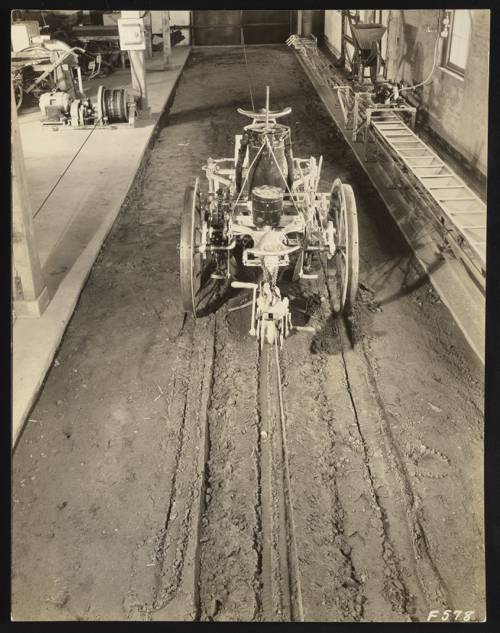
FAQ About Indoor Plant Soil Remediation Techniques

What is indoor plant soil remediation?
Indoor plant soil remediation refers to techniques used to restore contaminated or depleted soil in indoor environments to a healthy state suitable for plant growth. This process involves removing harmful contaminants and replenishing essential nutrients to ensure safe planting conditions and optimal plant health.

Why is soil remediation important for indoor plants?
Soil remediation is crucial for indoor plants as it ensures that the soil retains the right balance of nutrients, pH, and texture necessary for plant growth. Contaminated or unbalanced soil can hinder plant health, lead to poor growth, and even toxify the plants, making remediation an essential step for maintaining a thriving indoor garden.

What are common contaminants found in indoor plant soil?
Common contaminants in indoor plant soil include heavy metals like lead and cadmium, pesticides, pathogens such as fungi and bacteria, and chemical residues from fertilizers. These contaminants can adversely affect plant health and the surroundings, necessitating effective remediation practices.

How can I test my indoor plant soil for contamination?
To test your indoor plant soil for contamination, you can use a home soil testing kit available at garden centers or send a soil sample to a professional laboratory. These tests typically analyze soil pH, nutrient levels, and the presence of contaminants such as heavy metals or pesticides.

What methods are used in indoor plant soil remediation?
Indoor plant soil remediation methods include soil flushing, bioremediation using beneficial microbes, the addition of organic matter or amendments like activated charcoal, and replacing contaminated soil with new, sterilized soil. Each method targets specific contaminants or soil deficiencies.

Can activated charcoal help in soil remediation for indoor plants?
Yes, activated charcoal can be highly effective in soil remediation for indoor plants. It acts as an adsorbent, capturing and retaining toxins, chemicals, and unwanted substances from the soil, thereby helping to purify it and promote healthier plant growth.

Is it safe to use chemical fertilizers in indoor soil remediation?
While chemical fertilizers can supply essential nutrients to the soil, overuse or improper application can lead to further soil contamination and imbalances. It's crucial to apply based on specific plant needs and soil testing results, sometimes opting for organic fertilizers or amendments instead for safer soil remediation.

What is bioremediation and how does it apply to indoor plant soil?
Bioremediation refers to using living organisms, such as microbes, to remove or neutralize contaminants from soil. In indoor plant soil, beneficial bacteria and fungi can break down harmful substances, improving soil health and plant vitality naturally and sustainably.

How often should soil remediation be performed on indoor plants?
The frequency of soil remediation for indoor plants depends on the plant species, soil condition, and environmental factors. Generally, monitor your plants for signs of poor health or soil imbalance and conduct tests when necessary. Routine nutrient replenishment and maintenance may be needed annually or biannually.

What are the signs that indoor plant soil needs remediation?
Signs that your indoor plant soil may need remediation include yellowing leaves, stunted growth, poor drainage, and the presence of mold or pests. Soil that appears compacted or emits a foul odor may also indicate contamination or nutrient deficiencies needing remediation.

Can indoor plant soil remediation be done naturally?
Yes, there are many natural methods to remediate indoor plant soil, such as using compost to enhance microbial activity, applying natural amendments like lime for pH balance, or integrating plants known for phytoremediation, which help remove contaminants naturally from the soil.

What role does pH play in indoor soil health and remediation?
Soil pH affects nutrient availability and microbial activity, making it a critical factor in soil health. In soil remediation, pH adjustment can help balance the soil environment, allowing plants to access the nutrients they need and supporting beneficial soil organisms.

How can overwatering impact indoor plant soil and its remediation?
Overwatering can lead to soil compaction, nutrient leaching, and increased susceptibility to pathogens like root rot. Effective soil remediation must address overwatering effects by improving drainage, incorporating organic matter, and ensuring proper watering practices to restore soil health.

Are there professional services available for indoor plant soil remediation?
Yes, many professional gardening and landscaping services offer indoor plant soil remediation. These professionals can conduct detailed soil analysis, recommend specific remediation strategies, and perform necessary procedures to restore and maintain soil health.

What is soil flushing and how is it used in indoor plant soil remediation?
Soil flushing involves using water to dissolve and wash away soluble contaminants from the soil. In indoor plant soil remediation, it helps remove excess salts and chemical residues, though it must be done carefully to avoid over-saturation and nutrient loss.

How can I maintain soil health after remediation?
After remediation, maintain soil health by regularly checking soil pH and nutrient levels, ensuring proper drainage, rotating plants to balance nutrient demands, and using organic mulch or amendments to replenish the soil. Consistent care can prolong the benefits of remediation.

What is phytoremediation and can it be used indoors?
Phytoremediation is a method using plants to absorb or degrade contaminants from the soil. Certain plants can be used indoors to clean the soil; however, choosing species that thrive indoors and are effective in contaminant uptake is crucial for success.

Can soil contamination affect indoor air quality?
Yes, soil contamination can affect indoor air quality, especially if volatile compounds evaporate from the soil. Remediating the soil can help mitigate these effects by eliminating pollutants that could otherwise contribute to indoor air pollution.

What are some preventive measures to avoid soil contamination indoors?
Preventive measures include using quality potting soils, avoiding the excessive use of fertilizers or pesticides, and ensuring proper drainage to prevent pathogen buildup. Regularly rotating plants and testing soil can also help maintain healthy, uncontaminated indoor soil.

Does composting help with indoor plant soil remediation?
Composting adds organic matter, enhancing soil structure and microbial diversity, crucial for breaking down contaminants and improving nutrient profiles. It can be a helpful part of indoor plant soil remediation by naturally restoring health and vitality to the soil.
